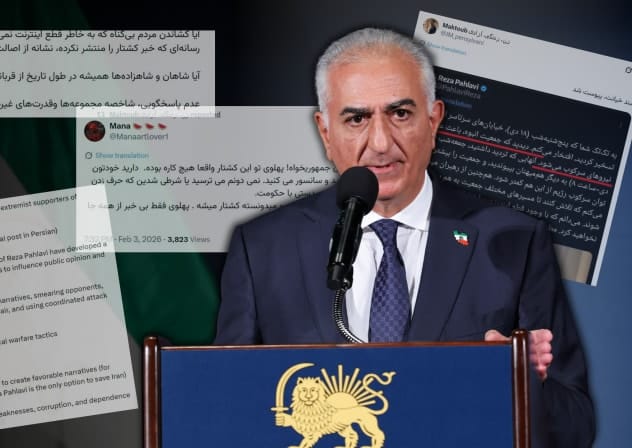Political games and a message to the West: Expert expects more mock democracy from PA elections
Prof. Kobi Michael said that it was likely PA President Mahmoud Abbas would find another way to postpone elections if it seemed Fatah would lose.

Prof. Kobi Michael said that it was likely PA President Mahmoud Abbas would find another way to postpone elections if it seemed Fatah would lose.




Arab mediators convinced the US to drop the demand that talks with Iran on Friday go beyond nuclear discussions. Nevertheless, the American position on the matter is unchanged, and gaps remain.

At the International Mediterranean Tourism Market (IMTM) 2026, the change was evident from the outset.There was a steady current of visitors moving between booths, and the exchanges felt purposeful.

There were reports that Supreme Leader Ali Khamenei “issued a directive” to mobilize the cyber apparatus against Pahlavi.

Iranian harassment of US ships prompts military reaction, increasing already-strained tensions between the two countries.

"Sometimes the cost reaches thousands of shekels," a source told Walla, explaining that the skyrocketing cost is due to decreased supply and high demand.

Iranian officials have repeatedly said Tehran had recovered from the damage incurred during the war and that its capabilities are better than ever.

Sources close to Hamas say the terrorist group has yet to start talks on disarming, a move that is meant to precede the start of rebuilding Gaza's destroyed cities.

Gulf states, including Saudi Arabia, the UAE, and Qatar, say they will not release billions in rebuilding aid until Hamas disarms and enforceable security guarantees are in place.

The changes on the ground are part of a January 30 deal between the Syrian Transitional Government and the Syrian Democratic Forces.

“Oh God, deal with the Jews who have seized and occupied, for they cannot escape your power,” Sheikh Saleh bin Humaid, an imam at the Grand Mosque in Mecca, said in a recent sermon.
